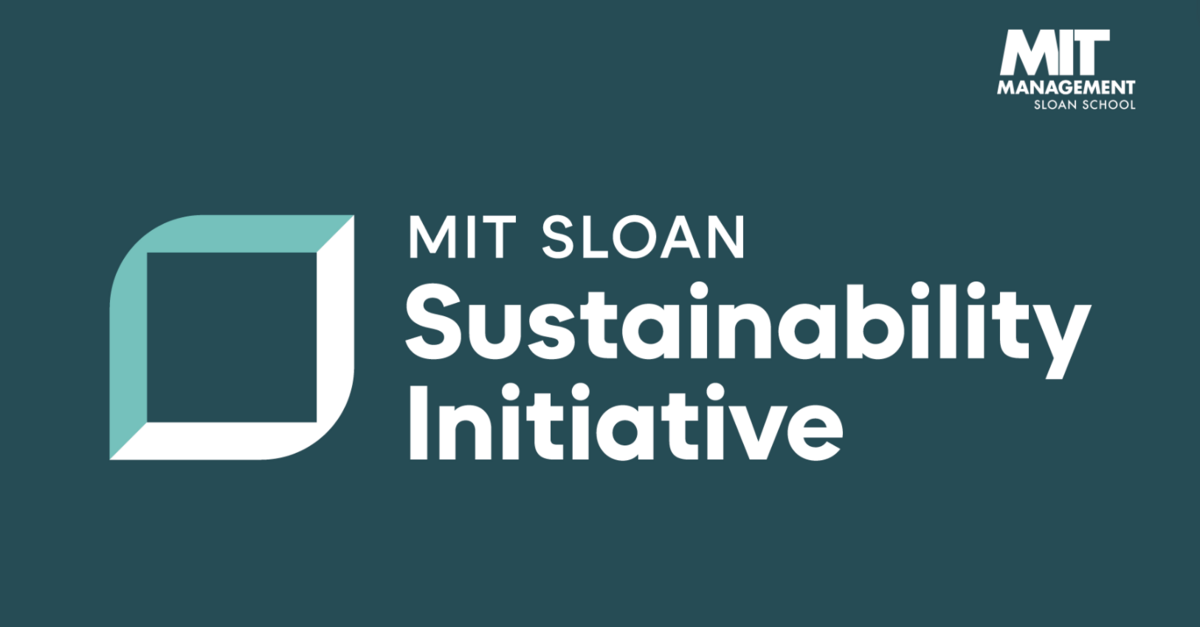
MIT's Climate and Sustainability Initiatives
In a world increasingly defined by the urgency of climate change, the Massachusetts Institute of Technology (MIT) is taking bold strides to tackle this global challenge through innovative research and groundbreaking initiatives. MIT has recently announced a series of ambitious projects aimed at advancing sustainable energy solutions and developing cutting-edge carbon capture technologies. These efforts are part of the institute's broader commitment to fostering a sustainable future and equipping the next generation of leaders with the tools to combat climate change.
A Legacy of Leadership in Climate Research
MIT has long been a leader in climate science and sustainability research, with a rich history of initiatives that bridge science, technology, and policy. The institute’s commitment to addressing climate change was further solidified in 2015 with the launch of the MIT Environmental Solutions Initiative (ESI), which aims to develop comprehensive strategies for environmental sustainability and resilience.
Recent Announcements: New Research Initiatives
In the latest wave of initiatives, MIT has unveiled several projects focused on sustainable energy and carbon capture technologies. These projects not only seek to reduce greenhouse gas emissions but also aim to create economically viable pathways for a sustainable future.
Sustainable Energy Solutions
One of the cornerstone projects announced is the development of advanced solar energy technologies. Researchers at MIT are exploring new materials that can significantly improve the efficiency of solar panels. By using perovskite materials known for their high efficiency and low manufacturing costs MIT scientists aim to create solar cells that can be produced more cheaply and efficiently than traditional silicon-based panels.
Professor Angela Belcher, a prominent figure in this initiative, states, “The goal is to create solar technologies that are accessible to everyone, not just affluent regions. We want to democratize renewable energy and make it a viable option for communities around the world.”
Energy Storage Innovations
Another vital area of focus is energy storage. As renewable energy sources like solar and wind become more prevalent, efficient storage solutions are crucial to ensure a stable energy supply. MIT researchers are investigating advanced battery technologies, including solid-state batteries and new chemical processes, which promise higher energy densities and faster charging times. This research aligns with MIT's broader vision of a clean energy future, where renewable sources can reliably power homes, businesses, and industries without contributing to carbon emissions.
Carbon Capture Technologies: A Game Changer
In addition to advancing renewable energy technologies, MIT is at the forefront of carbon capture and sequestration (CCS) research. Recent announcements have highlighted innovative approaches to capture carbon dioxide emissions from industrial processes and the atmosphere.
Direct Air Capture
One of the most groundbreaking projects involves Direct Air Capture (DAC) technology. MIT researchers are developing systems that can extract CO2 directly from the air, a process that could play a crucial role in mitigating climate change. By utilizing advanced sorbent materials and innovative chemical processes, these systems can potentially remove millions of tons of CO2 annually.
Dr. William Green, a leading researcher in the DAC initiative, explains, “While reducing emissions is essential, we also need to remove existing CO2 from the atmosphere. DAC technology offers a promising solution to help us achieve net-zero emissions.”
Carbon Utilization Strategies
Beyond capture, MIT is also exploring how captured carbon can be utilized. Researchers are investigating ways to convert CO2 into useful products, such as fuels, chemicals, and construction materials. This not only provides a means of recycling carbon but also opens up new economic opportunities.
For instance, a recent project involves collaborating with industry partners to develop methods for turning captured CO2 into synthetic fuels, which could be integrated into existing energy infrastructures. This dual approach of capturing and utilizing carbon presents a promising avenue for sustainable industrial practices.
Interdisciplinary Collaboration and Community Engagement
MIT’s initiatives in climate and sustainability are characterized by their interdisciplinary nature, bringing together experts from various fields, including engineering, chemistry, economics, and public policy. This collaborative approach is essential for developing comprehensive solutions to the multifaceted challenges of climate change.
Engaging Students and the Community
In addition to its research initiatives, MIT is actively engaging students and the broader community in sustainability efforts. The institute has launched educational programs that equip students with the knowledge and skills needed to address environmental challenges. Initiatives like the MIT Climate and Sustainability Consortium provide platforms for students, faculty, and industry leaders to collaborate on sustainable projects and share innovative ideas.
Moreover, MIT is committed to fostering community engagement by hosting workshops, lectures, and public forums that discuss sustainability topics. By involving the public and local communities, MIT aims to create a culture of sustainability that extends beyond its campus.
Commitment to Carbon Neutrality
MIT's climate initiatives are part of a broader commitment to achieving carbon neutrality by 2026. The institute has set ambitious goals for reducing its own carbon footprint, including increasing energy efficiency, investing in renewable energy sources, and implementing sustainable practices across its campus.
Campus Sustainability Efforts
To support its carbon neutrality goals, MIT has invested in a variety of sustainability projects on campus. These include retrofitting buildings for energy efficiency, installing solar panels, and enhancing green spaces. The MIT campus itself serves as a living laboratory for sustainable practices, providing valuable insights that can inform research and policy.
Leadership in Policy and Advocacy
Recognizing that technological innovation alone is not sufficient to combat climate change, MIT is also advocating for policy changes at local, national, and global levels. The institute’s researchers frequently contribute to public discussions on climate policy, emphasizing the need for coordinated action and collaboration among governments, industries, and communities.
Looking Ahead: A Vision for the Future
As the effects of climate change become increasingly apparent, the urgency for effective solutions grows. MIT's commitment to climate and sustainability initiatives reflects its recognition of this challenge and its role as a leader in driving change.
Expanding Research Horizons
Looking forward, MIT plans to expand its research horizons further by exploring new areas of climate science and technology. This includes investigating the potential of alternative energy sources, such as hydrogen fuel cells and geothermal energy, as well as developing climate-resilient infrastructure to adapt to the impacts of climate change.
Global Collaboration
In addition to local efforts, MIT aims to foster global collaboration on sustainability initiatives. By partnering with international research institutions and organizations, MIT seeks to share knowledge and resources, amplifying its impact on global climate efforts.
Conclusion: A Collective Responsibility
MIT’s proactive approach to addressing climate change through innovative research and community engagement underscores the critical role that educational institutions can play in fostering sustainability. With new initiatives in sustainable energy and carbon capture technologies, MIT is not only advancing scientific knowledge but also paving the way for a more sustainable future.
As the world grapples with the challenges of climate change, the efforts at MIT serve as a reminder that collective action, interdisciplinary collaboration, and a commitment to innovation are essential in the fight for a healthier planet. The institute’s initiatives inspire hope and demonstrate that through research and dedication, transformative change is possible. As MIT continues to lead the way, the potential for impactful solutions to emerge remains brighter than ever.
About C5K
C5K is the world’s largest technical professional organization dedicated to advancing technology for the benef of humanity
